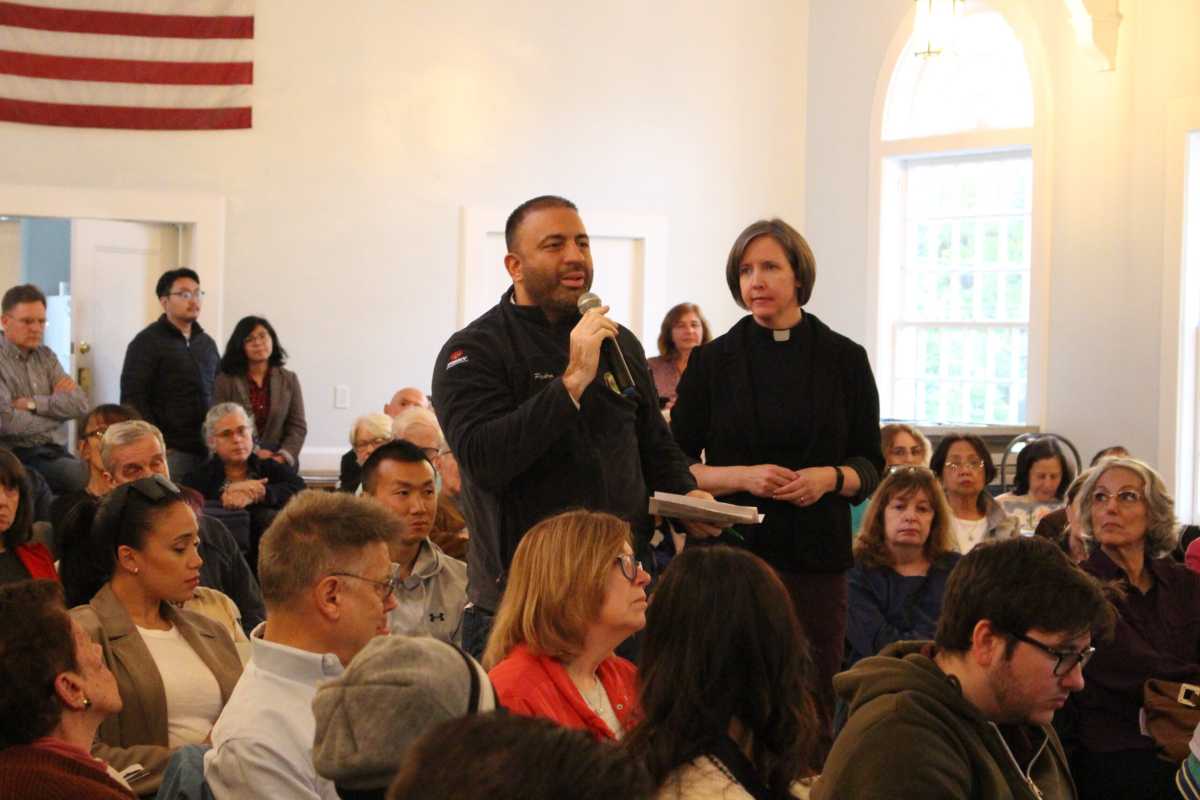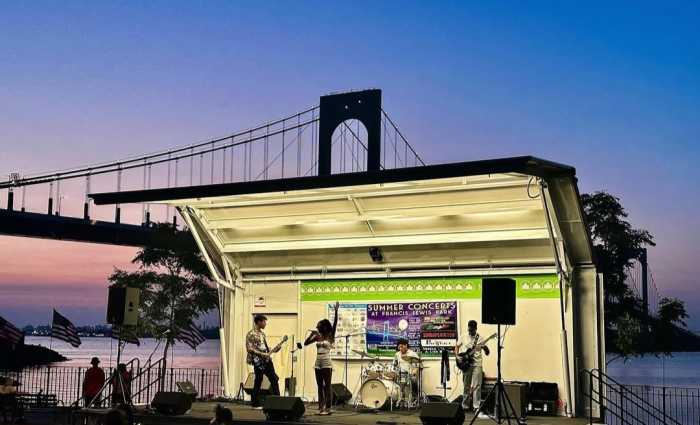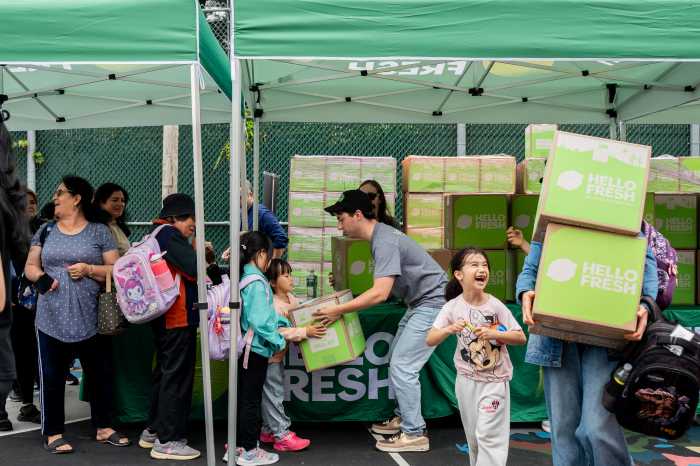About 100 people were in attendance at the Douglaston Zion Episcopal Church on Thursday, May 18, for a town hall discussion about an incoming 75-bed transitional housing facility for women over the age of 55 set to open in mid-August.
The town hall, sponsored by City Councilwoman Vickie Paladino, included a panel of representatives from the city Department of Homeless Services (DHS), the city Department of Social Services (DSS), and Daytop Samaritan Village, that will operate the facility at 243-02 Northern Blvd., the former site of the Pride of Judea.
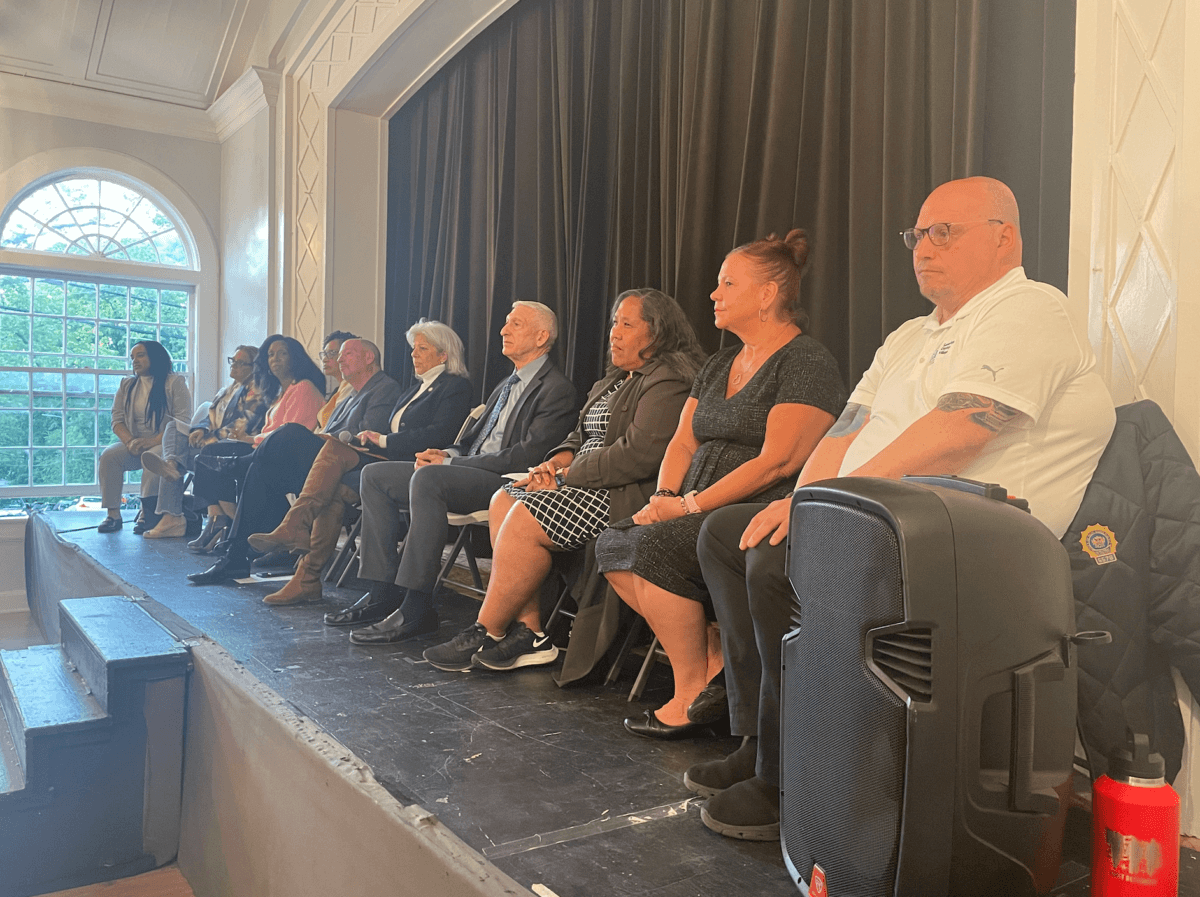
Jerry Heaney, vice president for transitional housing at Samaritan Village, announced that the 7,500 square-foot shelter will have four floors with a total of 10 dorms, a full working kitchen, laundry service, and bathrooms with one shower, sink and toilet for every 10 people. There will also be a new, small side yard, security guards, 60 cameras, and staff will be on-site 24/7 to assist clients and any situations that may arise.
“The women coming to the Northern Boulevard transitional residence will all come from DHS directly,” Heaney said. “They will come into the Franklin women’s shelter in the Bronx, which is the point of entry for all single women into the system. While they stay at the site, they’re evaluated for 21 days and are observed first before they come to the site.”
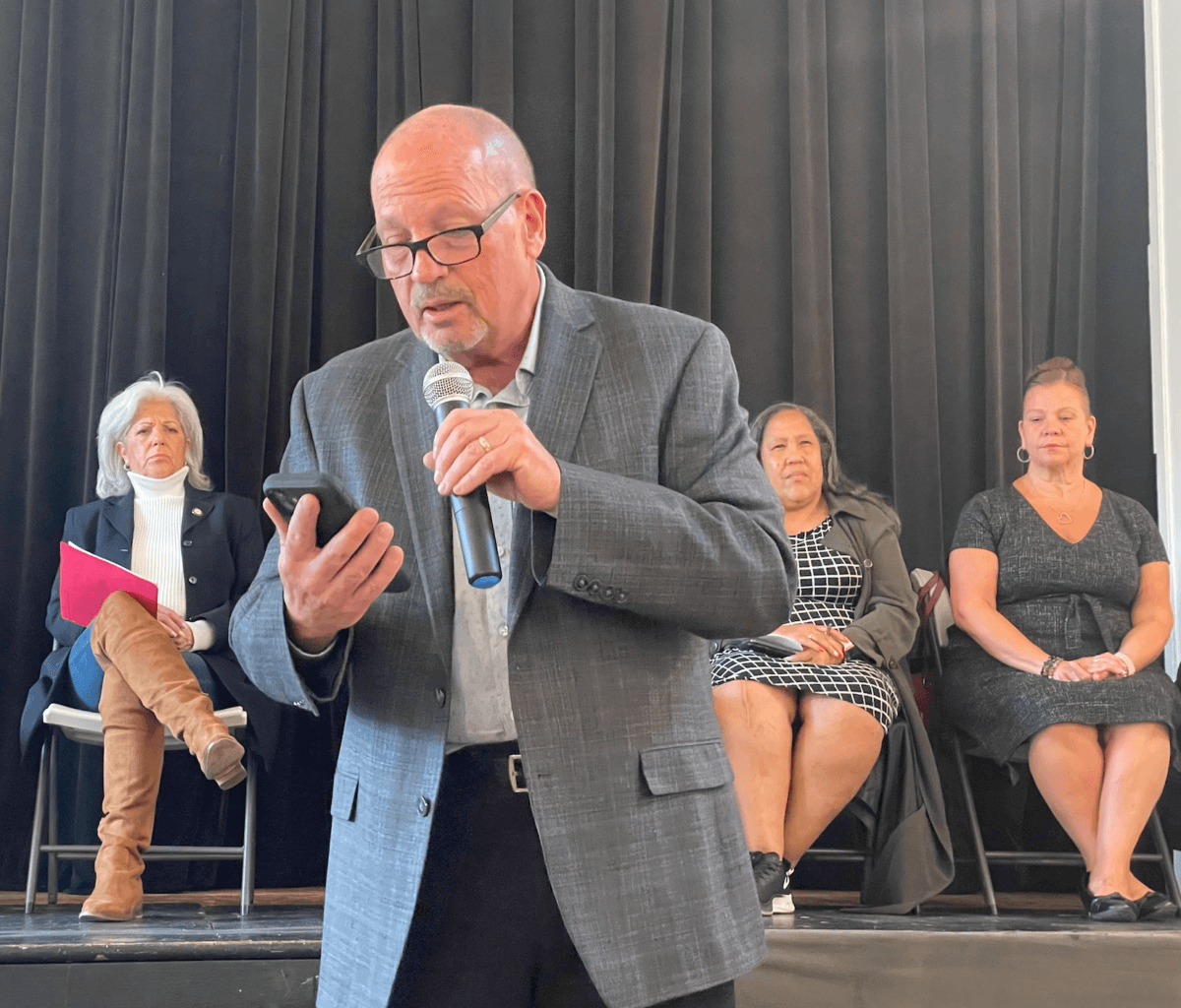
A Change.org petition was launched opposing the opening of the first homeless shelter in northeast Queens. Tensions flared during the town hall as residents voiced their concerns regarding crime and safety in the neighborhood, drug abuse, residents’ mental health, and questions about the day-to-day operations at the shelter.
“Knowing that the population will be an older, vulnerable population, how will you ensure that the neighborhood will not be overcome with people trying to sell drugs, perhaps trafficking and exploiting these women?” a resident asked, followed by another question of how long the women will stay at the shelter, and how can officials “guarantee that they’re not drug addicts.”
Cindy Teta, DHS assistant commissioner for single adult shelter operations, said a full assessment will be conducted for those seeking temporary housing. The women who are coming into the shelter are employed, receiving public assistance, SSI, SSD and people who are retired.
“They will share what’s in their past, what’s happening now, and we’ll determine the different bucket types of programs and shelters we have,” Teta said. “If they’re not appropriate for the site, that is when Samaritan Daytop Vilalge’s team works on transferring the clients to a facility that meets their needs.”
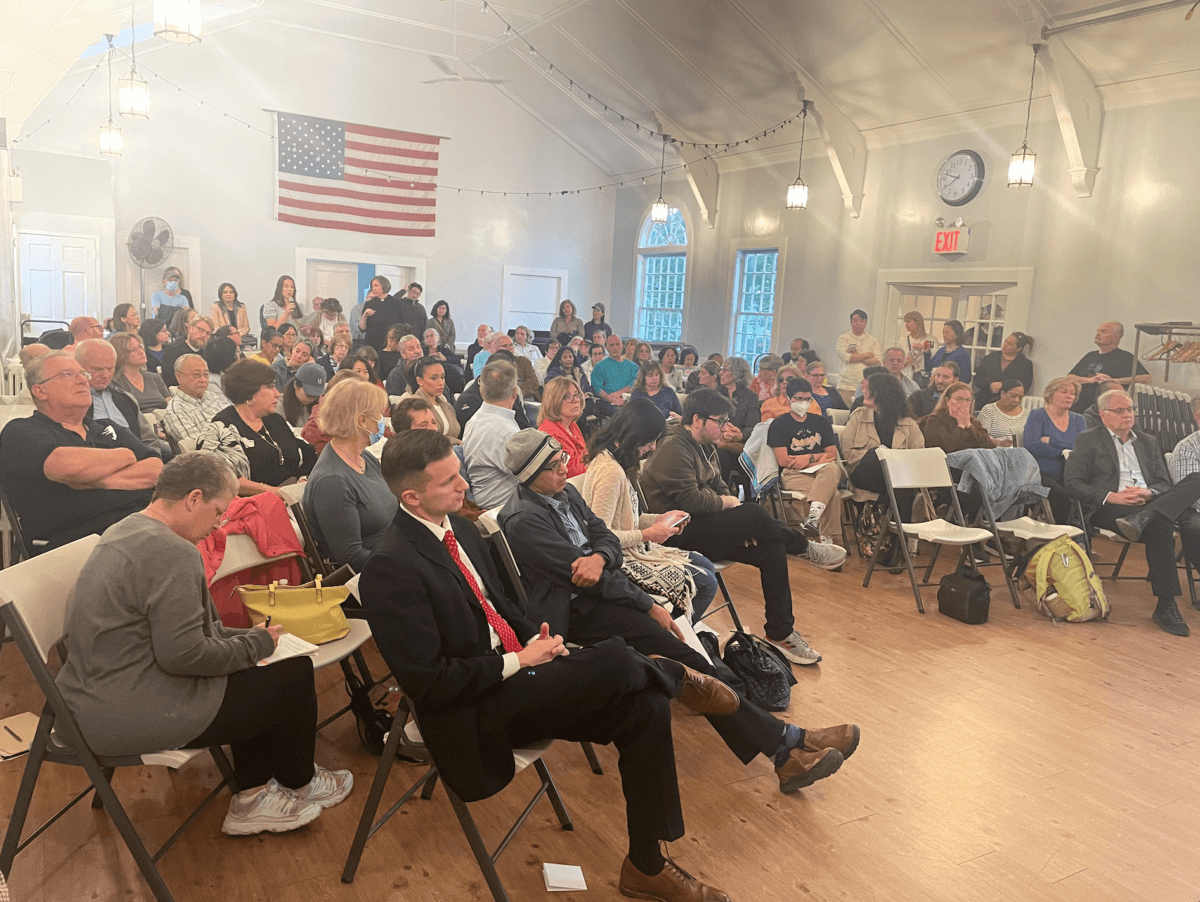
According to Teta, their clients will be taught how to be “good neighbors and good partners in the community,” adding that there are rules and regulations that they will have to abide by at the shelter.
In regards to a question asked about crime statistics, Hailey Nolasco, the Department of Social Services’ assistant deputy commissioner of intergovernmental and legislative affairs, said the department doesn’t do background checks on individuals specifically coming into the shelter since they’re in a vulnerable situation.
In terms of security safety measures, Anthony Maiello, director of Security at DayTop Samaritan Village, said the facility will have a 24-hour security system in place, and two security guards who will be stationed at the front desk to keep track of clients who enter and leave the premises.
If someone violates the 11 p.m. curfew or “persistently shows up stoned and drunk,” Maiello said they will not be allowed to enter the facility.
“We’re going to try to offer referrals and how to best assist them. If we cannot, we will look into transferring them to another facility to better serve their needs,” Teta said.
As for the women venturing out into the community, Teta said their clients are not required to leave the shelter but are encouraged to leave their dorms to participate in activities that will be offered in the recreational space in the facility. Most may have to head out for daily appointments but must return to the site by curfew.
Douglaston resident Mark Barrett, a former law enforcement officer and firefighter, said they were at a shelter every day because of “drug sales, drug use, assaults, sexual assaults and homicides.” Barrett added that while he’s happy people will have a place to live, he is concerned about the safety of his family.
When Barrett asked what the cost per resident is, Rev. Lindsay Lunnum, who helped facilitate the meeting, said it was a city budget question and not related to the Douglaston shelter.
According to Heaney, the annual budget will be $6 million a year to run the Douglaston shelter.
While some residents are angered by the women’s shelter opening in their neighborhood, others showed sympathy and compassion to help those in need.
Bob Schirling, chairperson of the Divine Wisdom Academy elementary school board, invited officials to the school that is within close proximity to the shelter.
“If you fail, the perception will be why even look at our academy because we don’t want to be near that place. But if we do it right, this can be a successful model for how cooperation needs to happen,” Schirling said. “We start in September, and I cannot wait to give our parents our plan for safety, security, and how kids are going to come into the building, how they will come out, what our kids are and how we are going to help those people. Please get the Community Advisory Board moving…we’re committed to our kids, families and christian values, and we want to make this work.”
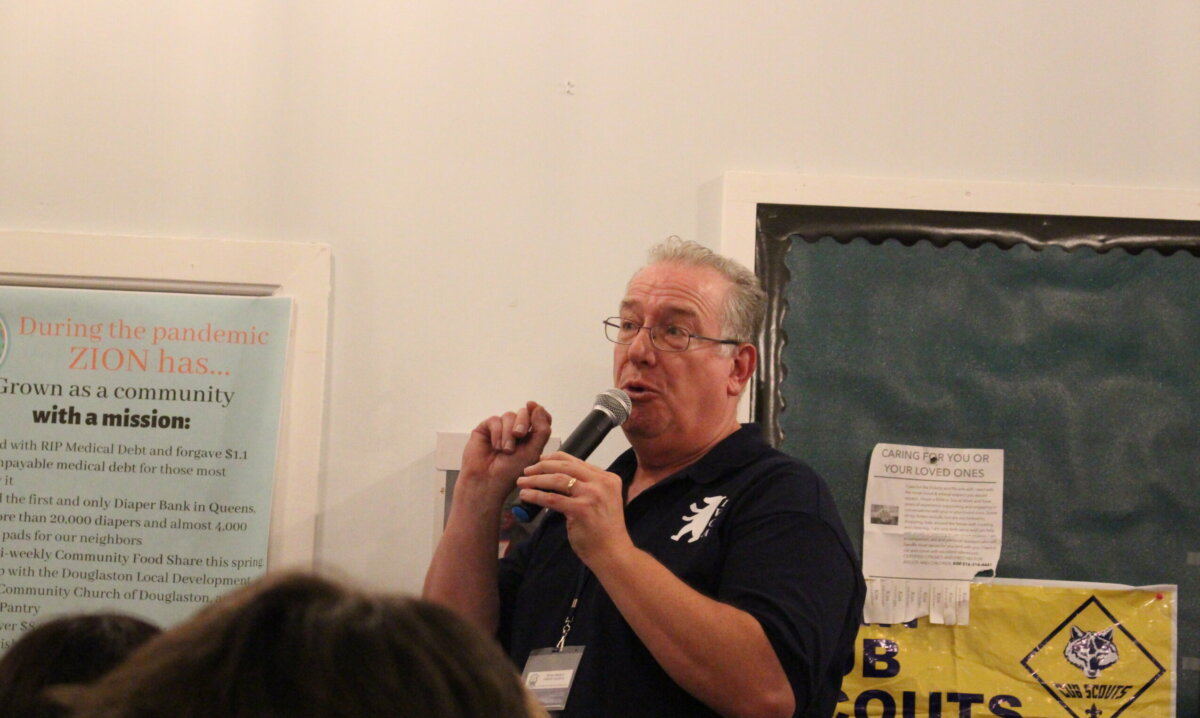
An elderly woman, who has been involved in a small independent women’s shelter in South Jamaica for over 20 years, said the women at that site were not a threat to the community, adding that they’re “vulnerable, and need protection and the humanity of a place to sleep at night where they can feel safe.”
“The fact that northeast Queens is an affluent area does not relieve us of an obligation to share what is a problem affecting the city of New York,” the resident said. “I urge you to ask your questions you are entitled to ask, but please recognize that we are part of a problem, which obviously aggravated by separate migration, and to please give them a chance.”
A teacher inquired about what kinds of items to donate.
Another resident, who was a former homeless services employee, said it’s a “humanitarian issue and an issue of civic responsibility” for the neighborhood to do something about the homelessness crisis in the city.
“We have an opportunity to contribute and do something positive and make a real positive contribution to the problem of homelessness in this city,” he said. “I want to know from the point of view of the panel, what can we do to make the homeless shelter successful? Because it’s happening whether we like it or not.”
When he noted that “studies show in terms of crime, litter and noise, homeless shelters caused less than you might think,” some audience members lashed out and one person shouted, “Why are we bringing homeless people into this community?”
In the heat of the moment, Paladino interjected as the peacemaker asking the audience to remain calm.
“Everyone simmer down. This is a hot-button issue,” Paladino said. “Attacking each other here is not permissible.”
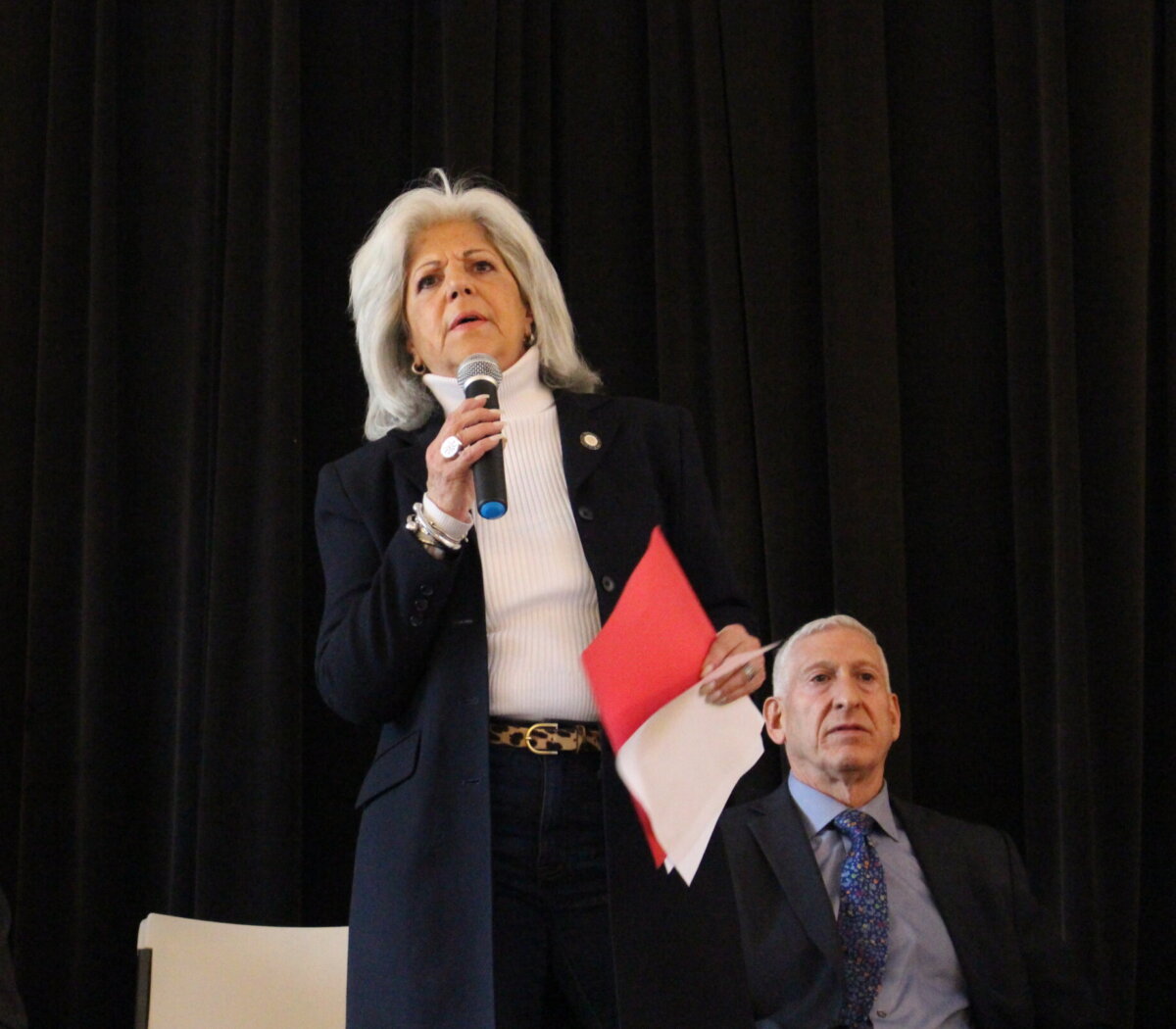
At the beginning of the meeting, Paladino said she was fearful as the residents were about the words homeless shelter.
“These are women 55 years and older, and they’re going to be living here. Anybody today could be one paycheck away from being in that situation,” Paladino said. “When I went to a homeless shelter not too far from here in the district in College Point, any kind of worry or thought I had before I was an elected official, slowly went away because the way it is run is key.”
When a resident asked Paladino about why she changed her stance from opposing the shelter to supporting it, the councilwoman said “reality changed.”
“The city is in a major crisis. There are 74,000 migrants crossing the border that are living in the city now,” Paladino said. “Now, we have another crisis that is coming, which we will have another town hall about. District 19 will not be immune to the migration coming over the border…so buckle up buttercups, this is just the beginning.”

